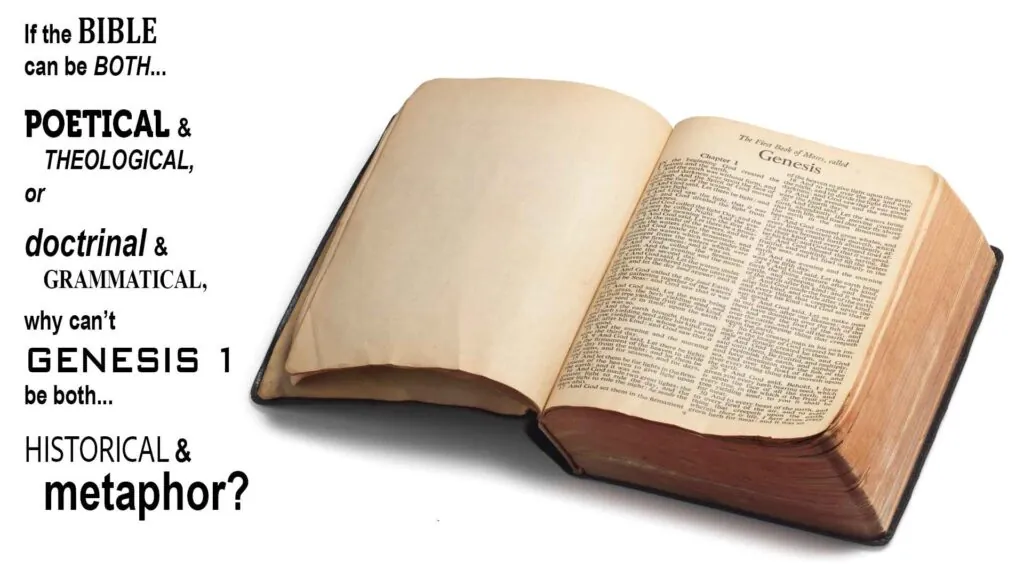A common objection to understanding Genesis 1 as history is that we should instead take it as theology. We’re told that God wants us to learn about Himself, and not history here. But it doesn’t have to be one or the other.
In 1 Corinthians 10, the Apostle Paul says something very important about the relationship between the “text” of Scripture and the “history” recorded in Scripture. We need to keep this connection between God’s work in history and the message of the words of Scripture in mind, so we can rightly understand the importance of the events recorded in Scripture. Paul is speaking in this passage about the events of the Exodus and the wilderness wanderings, and the importance of these events for his readers:
Now these things took place as examples for us, that we might not desire evil as they did. Do not be idolaters as some of them were; as it is written, “The people sat down to eat and drink and rose up to play.” We must not indulge in sexual immorality as some of them did, and twenty-three thousand fell in a single day. We must not put Christ to the test, as some of them did and were destroyed by serpents, nor grumble, as some of them did and were destroyed by the Destroyer. Now these things happened to them as an example, but they were written down for our instruction, on whom the end of the ages has come. – 1 Corinthians 10:6-11, (ESV)
Note carefully the words Paul uses in this passage. “These things occurred.” “These things happened.” These were actual events in history, and that is important.
To say that they were recorded in Scripture to make a theological point, a theological point that should have a great impact on all of God’s people, is absolutely true. They were “written down for our instruction.” But not only were these stories written down as warnings, “these things happened to them as an example”!
There is no dichotomy here between theology and history; the two are so tightly linked that they cannot be torn apart. It’s not “either-or.” It’s “both-and”! Did God use a recognizable pattern in his work of creation? Yes, he did, and that pattern was meant to teach us many very important things. But to say that his work is recorded in a pattern that is meant to teach must not be used as a reason to deny that what is recorded is a true and accurate account of actual events. Our God is the God of history, not merely the God of ideas.
This first appeared in the June 2015 issue.












